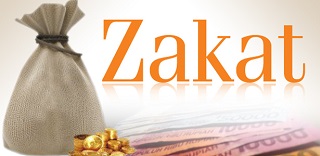Zakat is one of the five mainstays of Islam.



It has been referenced, alongside every day Prayers (Salaat/Namaz), more than multiple times in the Quran.
Allah’s statement ordering “… ..and accomplish Salaat and GIVE Zakat… ..” are referred to in numerous sections of the Quran.
From this, we can surmise that after Salaat, Zakat is the most significant act in Islam. Similarly, as Salaat is the most significant demonstration of love which must be performed in essence, so is Zakat the primary demonstration of love which must be performed financially.
The individuals who satisfy this obligation have been guaranteed a plenteous reward in this world and in the future. Whoever avoids Zakat has been sternly cautioned in the Quran and Hadith of the outcomes.
ZAKAT has two implications: purification and development. In fact, it intends to cleanse one’s ownership of riches by disseminating a recommended sum to poor people, the needy, the slaves or prisoners, and the wayfarer.
There are many significant advantages of giving Zakat: It helps Muslims to remember the way that whatever riches they may have is because of the endowments of Allah and thusly it is to be spent by the His directions.
Zakat payer pays his levy to Allah as a demonstration of love, a symbolic of accommodation and an affirmation of appreciation. The collector of Zakat gets it as a grant from Allah out of His abundance, some help for which he is grateful to Allah.
Zakat is compulsory upon an individual on the off chance that: He or she is a grown-up, normal, free and Muslim. He/she should have riches in an overabundance of determined least (Nisaab) barring his or her own needs (apparel, family unit furniture, utensils, autos, and so on are named article of individual needs).
The measure of riches which makes one at risk for Zakat is called Nisaab. Gold 87.48 Gram, Silver 612.36Gram.
Nisaab of money, stock or securities, other money resources is the proportional measure of Gold or Silver. Nisaab is determined by including the money estimation of the considerable number of benefits, for example, gold, silver, cash, and so on and on the off chance that it is equivalent TO or an overabundance of the base Nisaab as indicated in the above table, the Zakat is expected at the rate of 2.5%.
The installment of Zakat is mandatory on the overabundance riches or impacts which is equivalent to or surpasses the estimation of Nisaab, and which it had for a full Islamic year. On the off chance that such riches diminishes over the span of the year and expands again to the estimation of Nisaab before the year’s end, the Zakat at that point must be determined on everything that is had toward the year’s end.
Kinds OF WEALTH ON WHICH ZAKAT IS IMPOSED: Gold and silver, in any structure. Money, monetary certificates, stocks, securities, and so on. Product for business, equivalent to the estimation of Nisaab.Livestock. On pay got from the rental business.
Appropriation OF ZAKAT: Zakat ought to be given at the earliest opportunity after it ends up due. The majority of the Zakat can be given to one individual or to a few people. A poor man can’t be paid for his work from Zakat nor would zakat be able to be given in installment of administrations, but to the general population delegated by the Islamic government to gather Zakat. Zakat might be legitimate if the beneficiary is made the proprietor of that sum.
On the off chance that, for instance, a couple of destitute people are bolstered a supper from Zakat cash, at that point Zakat won’t be satisfied as they were not made proprietors of the sustenance. Zakat can’t be given for the development of Masjid, Madrasah, Hospital, a well, a scaffold or some other open pleasantry. Zakat can be paid in kind from a similar product on which it is expected, or on the other hand, it could be paid in real money.
Kinds OF WEALTH ON WHICH ZAKAT IS NOT IMPOSED: On any metals other than gold or silver.Fixtures and fittings of a shop, vehicle, trucks or any conveyance vehicle, and so on., which is utilized in maintaining a business.
Jewels, pearls, different valuable or semi-valuable stones which are for individual use. There is no Zakat on close to home, family unit furniture, pots and dish, individual apparel, regardless of whether they are being used or not.
There is no Zakat on an individual whose liabilities surpass or equivalent his advantages. (Home Mortgage in this nation isn’t to be considered individual obligation for the Zakat purpose).
RECIPIENTS OF ZAKAT:
The beneficiaries of Zakat, as indicated by the Quran are as per the following: “Charity is for poor people and the destitute, and those utilized to direct (the assets); for those whose hearts have been (as of late) accommodated (to truth); for those in subjugation and owing debtors; and for the wayfarer: (Thus is it) appointed by Allah, and Allah is brimming with Knowledge and Wisdom.” (Quran 9:60)FUQARA: individuals who are poor and who have more than their fundamental needs, however, don’t have riches equivalent to Nisaab.
MASAKEEN: individuals who are dejected and very poor to the degree they are compelled to ask for their everyday sustenance apportions.
AL-AILEEN: individuals named by an Islamic Government to gather Zakat.
MU-ALLAFATUL-QULUB: people who have as of late acknowledged Islam and need fundamental necessities who might profit by consolation by Muslims which would help reinforce their confidence.
AR-RIQAAB: slaves who are allowed to work for compensation and have an understanding from their lords to buy their opportunity on the installment of fixed sums.
AL-GHAARIMEEN: people who have an obligation and don’t have some other riches or products with which they could reimburse what they owe. It is restrictive that this obligation was not made for any un-Islamic reason.
FI-SABILILLAH: people who need to do a mandatory deed which has turned out to be compulsory on them and along these lines (because of loss of riches) are unfit to finish that commitment.
IBN-US-SABEEL: people who are explorers and over the span of their voyage don’t have fundamental necessities, however, they are wealthy at home. They could be given Zakat so as to satisfy venture out requirements to return home.
People WHO CANNOT BE GIVEN ZAKAT:
Zakat can’t be given to the relatives of Muhammad (P.B.U.H);
Zakat can’t be given to guardians and grandparents. In a similar way, one’s kids and grandkids can’t be given Zakat. A couple can’t offer Zakat to one another.
Ideals OF ZAKAT: Allah says in the Quran: “The anecdote of the individuals who spend their riches in the method for Allah is that of a grain of corn. It grows seven ears and every ear has a hundred grains. Allah builds a complex to whom He satisfies.” (Quran 2:261)
It is expressed in the Hadith that by giving Zakat the accompanying advantages are determined:
Addition to the joy of Allah.
Increment in riches and security from misfortunes.
Allah’s pardoning and gifts.
Security from the anger of Allah and from an awful passing.
Asylum on the Day of Judgment;
Security from seventy hardships.
THE PUNISHMENT FOR NOT GIVING ZAKAT:
Allah says in the Quran: “And there are the individuals who crowd gold and silver and don’t spend it in the method for Allah, report to them a most appalling punishment (when) on the Day of Judgment warmth will be delivered out of that riches in the flame of Hell. At that point with it, they will be marked on their brow and their flanks and backs. (It will be said to them) This is simply the fortune which you accumulated, taste than the fortune that you have been storing.” (Al-Quran 9:34-35)


